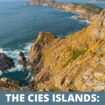
Go World Travel is reader-supported and may earn a commission from purchases made through links in this piece.
The Atlantic Islands National Park is a precious natural paradise in the Rías Baixas, in the north of Spain. It is formed by 4 archipelagos: Ons, Sálvora, Cortegada and the Cíes.
Of the four, the Cies Islands are the most spectacular and the most famous. Especially since British newspaper “The Guardian” described the beach of Rodas as “the best beach in the world”.
The Cies archipelago is anchored at the edge of the Atlantic Ocean and consists of three islands: North or Monteagudo, Del Medio or Faro and South or San Martin.
The latter is only accessible by private boat, while the other two can be reached by public transport during the summer. They are also linked by the beach of Rodas, its most famous and spectacular beach.

The Cies Islands are the perfect place for hiking, exploring unspoiled beaches, visiting lighthouses and snorkeling in crystal clear waters.
This archipelago is a palette of infinite greens surrounded by the intense blue of the Atlantic Ocean all around. Its location in the middle of the ocean and its low light pollution also make it one of the best places from which to observe the starry sky.

Sustainable Cies Islands
The ecological value and marine diversity of these islands cannot be disputed. It has become an example of protected biodiversity and its conservation efforts have been increasing in recent years. Since 2002, Cies, along with the other three archipelagos Sálvora, Ons and Cortegada have been declared National Parks.
In the Cies Islands there are no cars, no hotels and no noise. It is a place to enjoy nature in its purest state. That is why the only way to spend the night on the island is to sleep at the campsite. Here you can enjoy the tranquility of the environment and wake up with unbeatable views.
There are also certain areas where access is not allowed. This is due either to their fragility or their ecological value, such as breeding areas of seagulls and cormorants. Cíes is home to the largest colony of yellow-legged gulls in the world.
In fact, here the seagulls are the real owners of the island, so you have to be careful with them because as soon as you get careless they will steal your food. We always have to keep in mind that we are the ones who invade their territory.
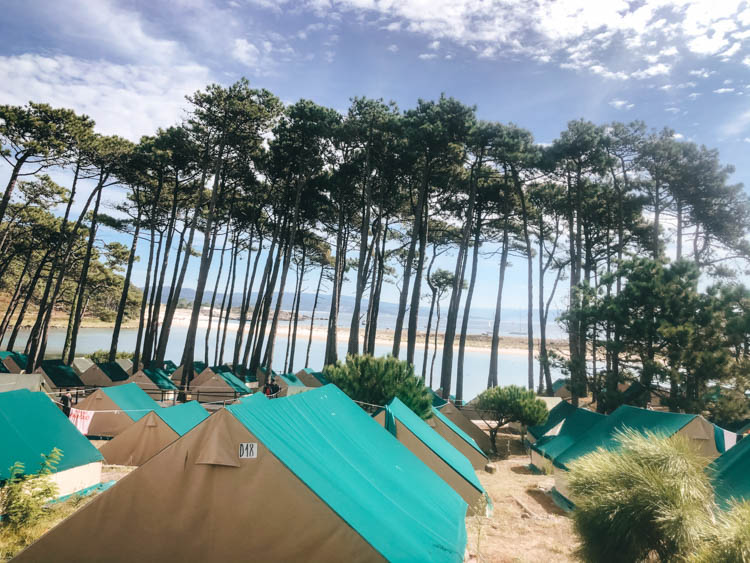
What to do in the Cies Islands
In the Cies Islands, you can do all kinds of activities, from hiking to discovering wild beaches, diving in its crystal-clear waters or watching seabirds. All this information is available at the information booth located at the end of the Rhodes pier.
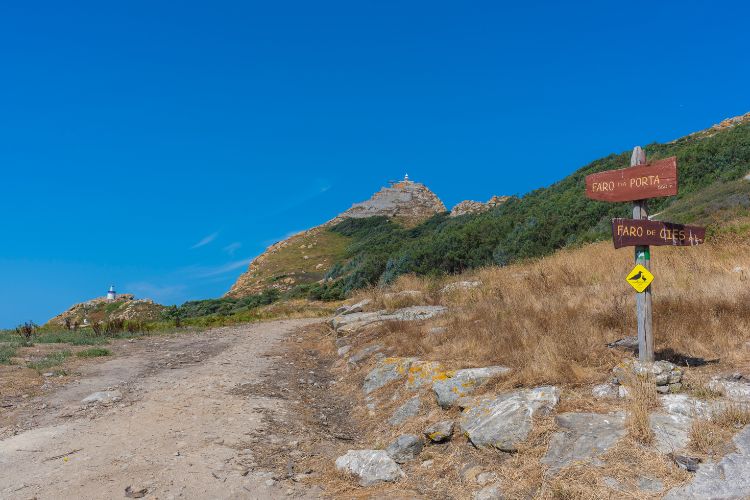
Hiking Trails in the Cies Archipelago
Before letting ourselves be tempted by the tranquility that the beach promises, the best way to discover the island is to follow some of the hiking trails that run through it. All the trails are well signposted and start from the information booth at the entrance to the island.
The most popular trail is the one that climbs up to the viewpoint of Mount Faro, the highest point on the island. We leave the iconic beach of Rhodes to walk the longest of the routes which is 7 kilometers in length (round trip).
The difficulty is not high until reaching the inevitable zigzagging slope that climbs up to the lighthouse, located 175 meters above the sea. The effort will be worth it because from the top there are excellent views of the archipelago and the ocean.
The other three routes on the island are shorter and also very worthwhile. The route that leads to Faro da Porta follows a path parallel to the sea until reaching the southern part of the island.
The Alto del Príncipe route is another popular trail that offers views of the island and cliffs from above. Finally, the lighthouse do Peito protects the northern entrance of the estuary.
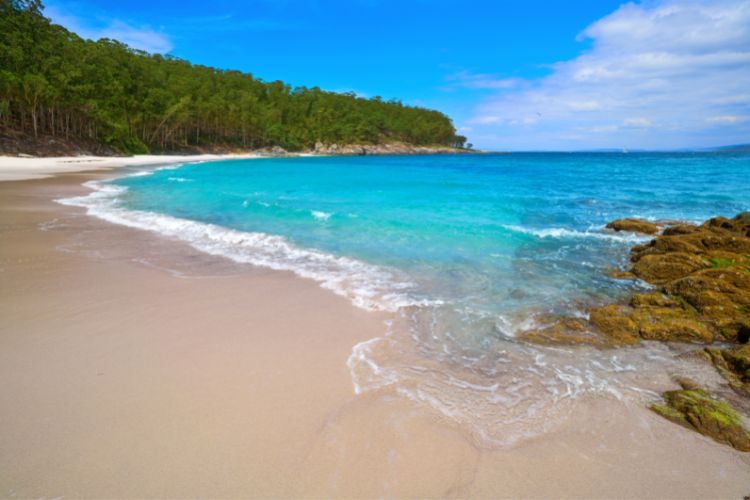
Beaches on the Cies Islands
If there is something Cies is known for, it is the incredible paradisiacal beaches, especially Rodas Beach. This impressive one-kilometer-long beach of fine sand and crystalline waters was declared the best in the world by “The Guardian” newspaper.
Rhodes joins the islands of Monteagudo and Faro in the shape of a crescent. Its extremely cold waters also characterize it, only the bravest dare to take a dip.
However, the Cíes Islands have many other beaches where it is worth stretching out the towel and enjoying its tranquility. The nudist beach Figueiras is one of the most beautiful and is less frequented than Rodas. Other beaches not to be missed are Bolos, Canteira and Margaridas.
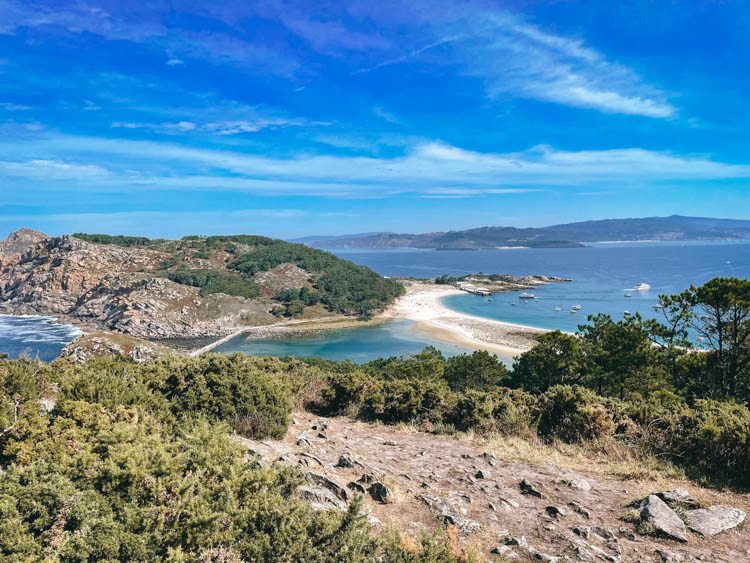
How to Get to the Cies Archipelago
To get to the Cies Islands you can take a boat from the city of Vigo or the small town of Cangas. Boats leave regularly every day but only during the summer season. In a 40-minute trip, you will arrive at the island of Monteagudo, where the pier is located.
It is essential to consider that the islands have a maximum limit of daily visitors, so before buying the boat ticket it is necessary to obtain the authorization of the Xunta de Galicia.
Book This Trip
Best Tips & Tools to Plan Your Trip
More helpful links:
- Booking of visits to the Atlantic Islands (xunta.gal)
- Travel to Cíes: Book Tickets to Cíes Islands, Galicia – Schedules and Rates (piratasdenabia.com)
- Timetables and prices of the Cies Islands, Ons, Vigo – Cangas, San Simon boat | Naviera Mar de Ons
- Why the Kimberley Should Be Your Next Australian Adventure - July 5, 2025
- How We Finally Afforded Our Dream Trip to the Swiss Alps (And You Can Too) - July 5, 2025
- Escape Manhattan for Governors Island - July 5, 2025

